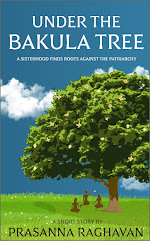Genres in Fiction-Part 2- Crime Fiction, 5 elements and tips for writing a good detective story.
This post explains crime fiction as a genre of fiction and its sub-genres. Also, 5 elements of crime fiction and 5 tips for writing a good detective story.
This post, the second part of genres in fiction, deals with crime fiction, its sub-genres and the 5 steps to keep when writing a good detective story. You can read Part 1 of this post in Genres in Fiction -Part 1 and Part 3 here.
What is a crime fiction?
According to Study Smarter, crime fiction refers to a fictional narrative in which a crime is committed, followed by an investigation conducted by a professional or amateur sleuth to solve the crime.
At the heart of crime fiction are:
- A discussion about crime and criminality.
- What does it mean to be a criminal?
- How does society cause corruption?
- What is so alluring about stories of crime?
- Is it the need to play out our hidden transgressive desires?
- Or the urge to confirm social order by catching and punishing criminals?
Sub-genres of crime fiction.
What are the subgenres of crime fiction?
1. Detective fiction
- The narrative typically follows the professional or mature detective who sets out to solve the crime.
- The audience learns more about the crime as the detective continues their investigation.
- A typical example is The Adventures of Sherlock Homes (1892) by Arther Conan Doyle.
2. Cosy ameture mysteries.
3. Locked room mysteries
4. Forensice fiction
5. Hard-boiled fictions, etc.
To read more on this, follow the link
What are the 5 elements of a good detective story?
The following are the five elements for writing a good detective story per MasterClass.
1. A detective.
- Every good crime story has a detective featured as the protagonist
- You want your detective to be unique among the detectives out there. You should consider their personality, motivation, background, strengths and weaknesses.
2. A Crime.
- There should be a central crime or string of crimes.
- It should be enjoyable, memorable and seemingly unresolable.
- It can be a murder, robbery or disappearance.
3. Suspects.
- Suspects are a vital part of your story.
- They also serve as red herrings to distract the readers' attention from the true culprits.
4. Antagonist.
- Every good detective story has an antagonist. It could be a police officer who wants to solve the crime first or is aware of the culprit's identity and is trying to cover up.
5. Settings.
5 tips for writing a good detective story.
1. Give your characters exciting motivation.
- The culprit's motivation is one of the most crucial parts of detective work.
- The readers want to know more than who committed the crime and why they committed it.
2. Learn about detective work.
- When writing a detective story, get the details right to keep the readers' attention with believable plot points so they don't wonder if what they read is accurate to real life.
- Do the research to know who should be the first to make it to the crime scene, how detectives would track people down or question them, and what role forensics would play in your crime scenes.
3. Don't make it simple.
- Readers want to be intrigued by a good mystery, so they will get bored if your crime is so easy to solve.
- Trust in your reader's ability for logical deduction, and do not give too much away to level them guessing and shocking.
4. Make sure there is a payoff.
- Avoid outcomes where readers feel disappointed by the answer to your novel's mystery.
- Also, try to avoid a situation in which the characters suddenly solve an impossible problem with little or no effort.
5. Experiment and innovate
- Read lots of detective fiction and subvert the tropes.
This post is part of the Blog Chatter Half Marathon 2023.
**








3 comments
This is quite encyclopaedic. 👍
ReplyDeleteOh thank you, that is quite encouraging. :)
Delete👍
ReplyDeletePost a Comment